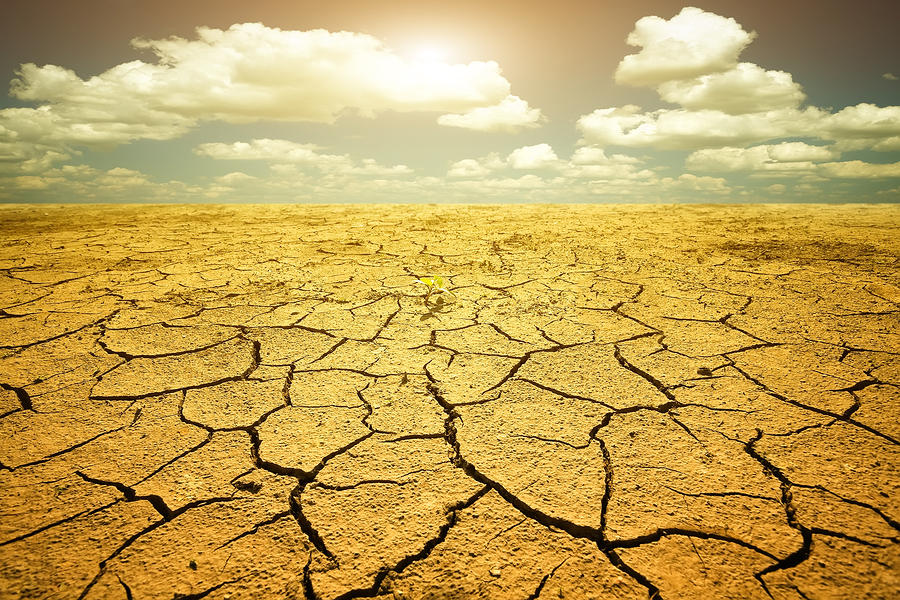- Make It Yourself Lavender Heart-Shaped Bath Bombs!
- 20 Things You Never Knew About “Down There”
- 12 Best Foods For Those Suffering From Arthritis Pain
- 12 Personal Hygiene Mistakes Almost Everyone Makes (Mom Never Told You About #4!)
- 15 Medicinal Plants And Herbs From The Cherokee People
- 12 Mind-Blowing Benefits Of Drinking Coconut Water During Pregnancy
- 12 Outstanding Winter Foods That Won’t Fatten You Up Like A Christmas Turkey
Climate Change And Mental Health: Is There A Connection?

Photo credit: bigstockphoto.com
Usually when climate change is discussed, the potential effects on the natural, physical environment are emphasized. Visions of rising sea levels and the extinction of species of plants and animals fill people’s minds. Other times, the focus is on the effects on physical health that could occur as a result of climate change–disease outbreaks, physical injuries due to natural disasters, and more.
But in a recent speech at the 2017Conference related Climate, one psychiatrist argued that climate change could potentially affect people’s mental health as well. In the article below, we’ll explore her arguments, what the scientific facts are, and some practical steps people can take to stay mentally healthy in a world of rapid change.
Can Climate Change Really Affect Someone’s Mental Health?
According to Dr. Lise Van Sustren, the answer is quite possibly yes. Dr. Van Sustren is a Washington, D.C.-based private practice psychiatrist and board member of the T.H. Chan School of Public Health at Harvard University (fun fact–she’s also the sister of MSNBC host Greta Van Sustren).
Dr. Van Sustren argues that the increase in pollutants in the air caused by carbon emissions and other sources can affect people’s brains. According to her speech, when people breathe in this contaminated air, the dirty particulate matter can create neural inflammation. This can result in an increased likelihood of developing some form of mental illness or neurological condition. Inflammation in the brain has also been linked to the development of Alzheimer’s disease and other neurodegenerative conditions.
Dr. Van Sustren also cited a report by the American Psychological Association that stated that air pollution, which many scientists and governments believe to be the key driver in climate change, can affect pregnant women in a unique way. The report claims that women who breathe in polluted air during pregnancy will give birth to children who are more likely to show symptoms of depression or anxiety later in life. When one considers how polluted the air in some cities are, especially in Asian countries like China and India, this claim certainly raises cause for concern. (There are not, at this time, studies in those countries that verify this, however.)
Continue to Page 2

Photo credit: bigstock
Heat and Aggression
Climate change was once more commonly referred to as global warming. This term is still widely used, and increased temperatures are the most frequently described manifestation of climate change. What effect, if any, do increases in temperature have on mental and emotional health? According to a fascinating 2015 report by The Guardian, it could indeed be having an influence on people’s behavior.
When the weather is very cold, you can always put more layers on. Thus, you have a degree of control over it. But when it’s hot and humid, unless you have access to air conditioning, there’s only so much you can do. Many people, the report claims, feel anger when they’re afflicted by circumstances over which they have little or no control. The report argues that extreme heat and humidity can contribute to increased feelings of irritability and stress due to that fact that those affected can’t really escape it. This is connected to the theory of Cognitive Neoassociation Theory, which states that people who are exposed to negative stimuli will be predisposed to negative feeling toward anything they associate with those stimuli. In the case of omnipresent stimuli like high temperatures and humidity, this can encompass basically everything and everyone.
These factors are part of the reasons why people think there’s a spike in violent crime during the summer months in many countries. The Guardian article suggests that the intense heat may have been a contributing factor in the London riots that took place in the summer of 2011. If increases in temperature lead to increased aggression, could more such events happen in other places as well?
Continue to Page 3

Photo credit: bigstockphoto.com
PTSD and Climate Change
Many scientists are claiming that climate change is contributing to natural disasters. A catastrophic event like an earthquake, hurricane or tsunami can have devastating effects on people’s lives. The injuries and intensity of the event can trigger post-traumatic stress disorder (PTSD) in some survivors of natural disasters. PTSD can continue to persist for a long time after the event has passed and have a deleterious effect on that person’s quality of life. Seeing one’s home or business destroyed in a disaster can also lead to considerable stress, which can take a toll on mental health as well.
What Can You Do?
As time goes on, more research can and will be done to learn more about the effects of climate change on mental health. In the meantime, stay on top of scientific developments, but don’t stress out about them. That doesn’t help you or anyone else. Focus on what you can do, which is taking charge of your own health and life and doing everything you can to reduce stress.
READ ALSO: The Influence Of Climate Change On Global Food Supply
If you’re dealing with symptoms of mental illness, or you think you might be but aren’t sure, seek professional help, and talk to people you trust. Climate change may or may not be a factor in mental health, but your own mental health is, in most cases, something you can take action on.
References:

































